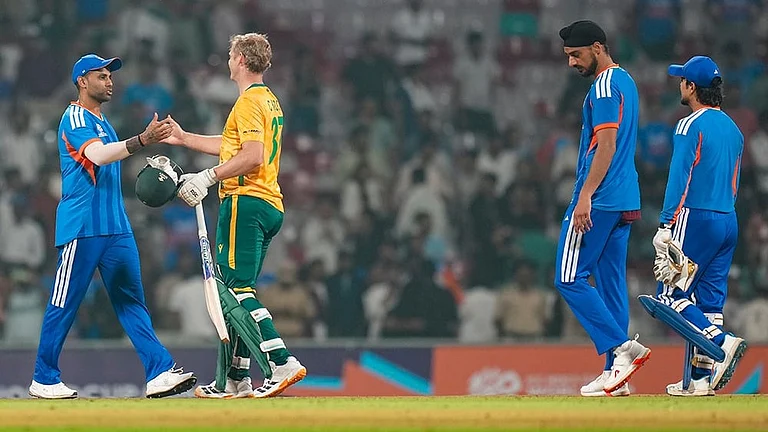Amid the turbulent state of geopolitics across the globe, an appeal has been made before the United Nations for urgent reform, especially in the Security Council. The latest demand focuses on the permanent representation of Africa and G4 nations such as India and Brazil.
Addressing the session of the UN Security Council, Secretary-General Antonio Guterres acknowledged that the composition of the UNSC has "failed to keep pace of the changing world".
“We cannot accept that the world’s preeminent peace and security body lacks a permanent voice for a continent of well over a billion people … nor can we accept that Africa’s views are undervalued on questions of peace and security, both on the continent and around the world,” he added further.
A similar statement was issued by the UN Chief on social media platform X.
In his statement, the UN Chief brought focus to the lack of representation of Africa and African voices in the security council. Currently, Somalia is serving as the non-permanent representative from Africa.
Sierra Leone, which is currently the chair of the African Union, also demanded for permanent representation of Africa.
Addressing the UNSC, President Julius Maada Bio said Africa demands two permanent seats in the UNSC and two additional nonpermanent seats.
"The time for half-measures and incremental progress is over. Africa must be heard, and its demands for justice and equity must be met," Bio added further.
UNSC 'Ill-Equipped' To Address Global Challenges
Along with Africa, G4 Nations - India, Brazil, Germany and Japan - have also made demands for permanent representation at the UN Security Council.
Delivering a statement on behalf of the G4 Nations, Indian Chargé d'Affaires and Deputy Permanent Representative to the UN Ambassador R Ravindra called for urgent reform in the Security Council.
"Recent global geopolitical events have clearly shown that the UN Security Council is unable to deliver on its primary responsibilities to safeguard international peace and security when the world needs it the most,” stated Ravindra.
The Indian envoy to the UN added further that the realities of 1945, which led to the formation of the UN, have long been superseded by current geopolitical realities and the need for change has been reflected across the members of the intergovernmental organisation.
Ravindra added that one of the key reasons for the underperformance of the UN and the Security Council can be attributed to the non-representation of Africa, Latin America and the Caribbean, and the under-representation of Asia Pacific in the permanent category.
"It is the G4's firm belief, shared we believe by Africa and other groups, that any reform of the Council that does not address the lack of representation, particularly in the permanent category, would only exacerbate the current imbalances in the Council's composition and render it ill-equipped to address today's international challenges,” the Indian envoy added.
Despite endorsement from countries such as the US, UK and more, G4 Nations' bid for permanent seats has been blocked at the UN level.
As per the latest reports, a counter group - Uniting for Consensus - was formed in the 1990s to oppose the expansion of permanent seats in the UNSC.
The group is currently led by Pakistan, which is opposing a permanent seat for India. Italy and Spain are in opposition for German representation, Mexico, Colombia, and Argentina are in opposition of Brazil; and South Korea, which is opposing Japan.
During Monday's session, China also opposed a seat for India. China's Permanent Representative Fu Cong criticised India and the G4, stating that the group is trying to "pursue their own selfish and small-circle interests when it comes to Council reform".
What Is The Current Structure Of The UNSC?
The UNSC comprises of 15 nations. Of this, five hold permanent seats and the power to veto key decisions and 10 nations hold a rotating non-permanent seat.
China, France, Russia, the UK and the United States have been the five permanent members of the UNSC since its formation. Russia took over for the Soviet Union after the collapse of the bloc.
For the 10 non-permanent seats - three seats are saved for African states; two each for Asia-Pacific, Latin America, the Caribbean region, and Western Europe and other states; and one for Eastern Europe. Each nation in the non-permanent seat is part of the UNSC for a tenure of two years.



























